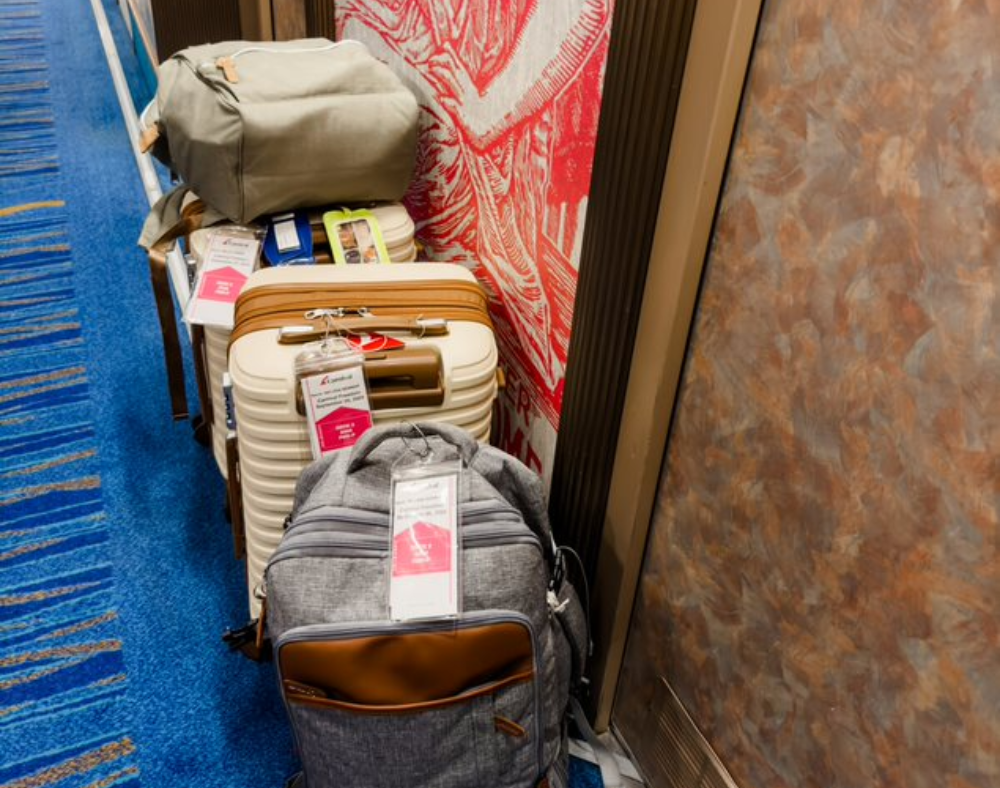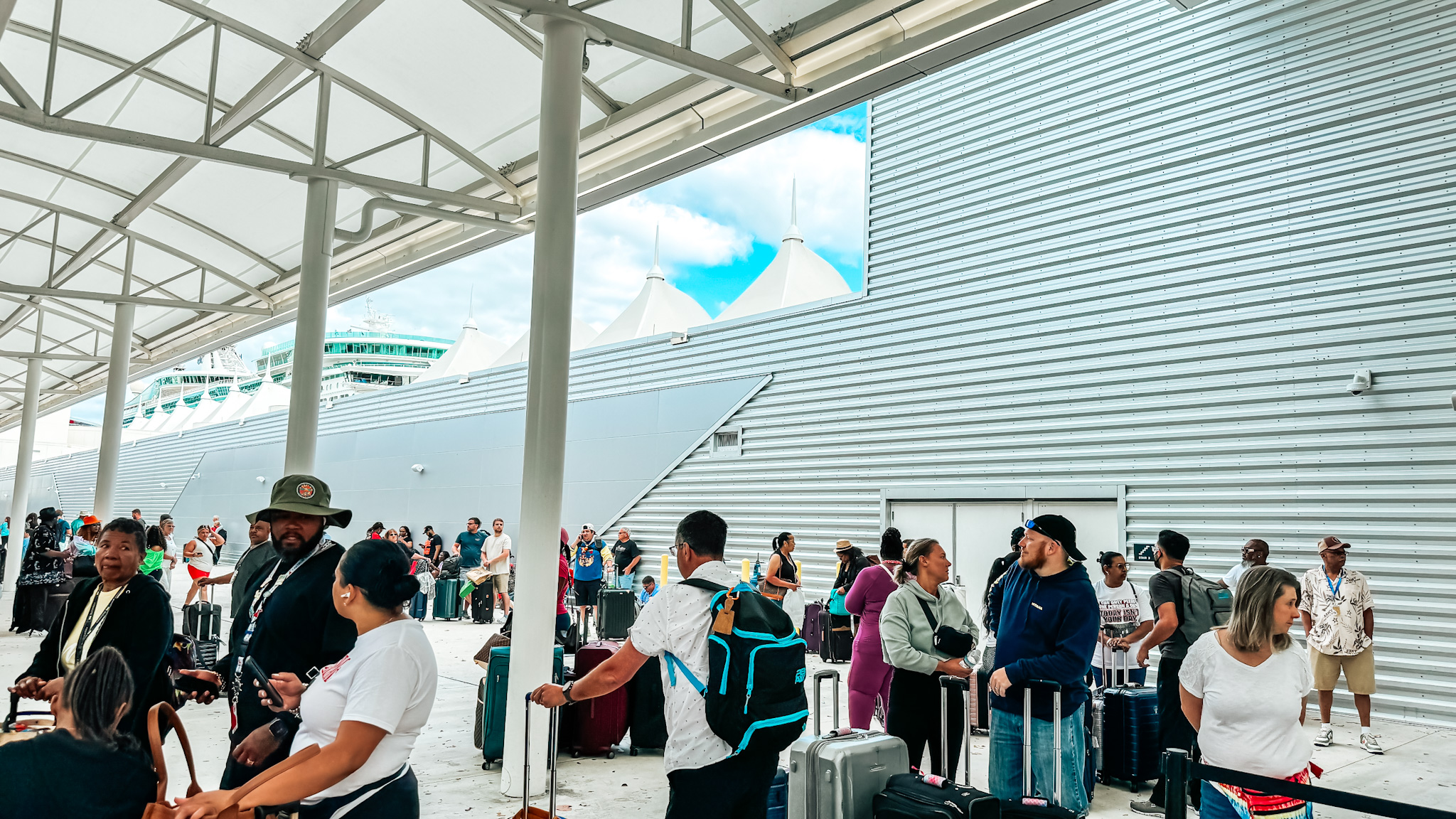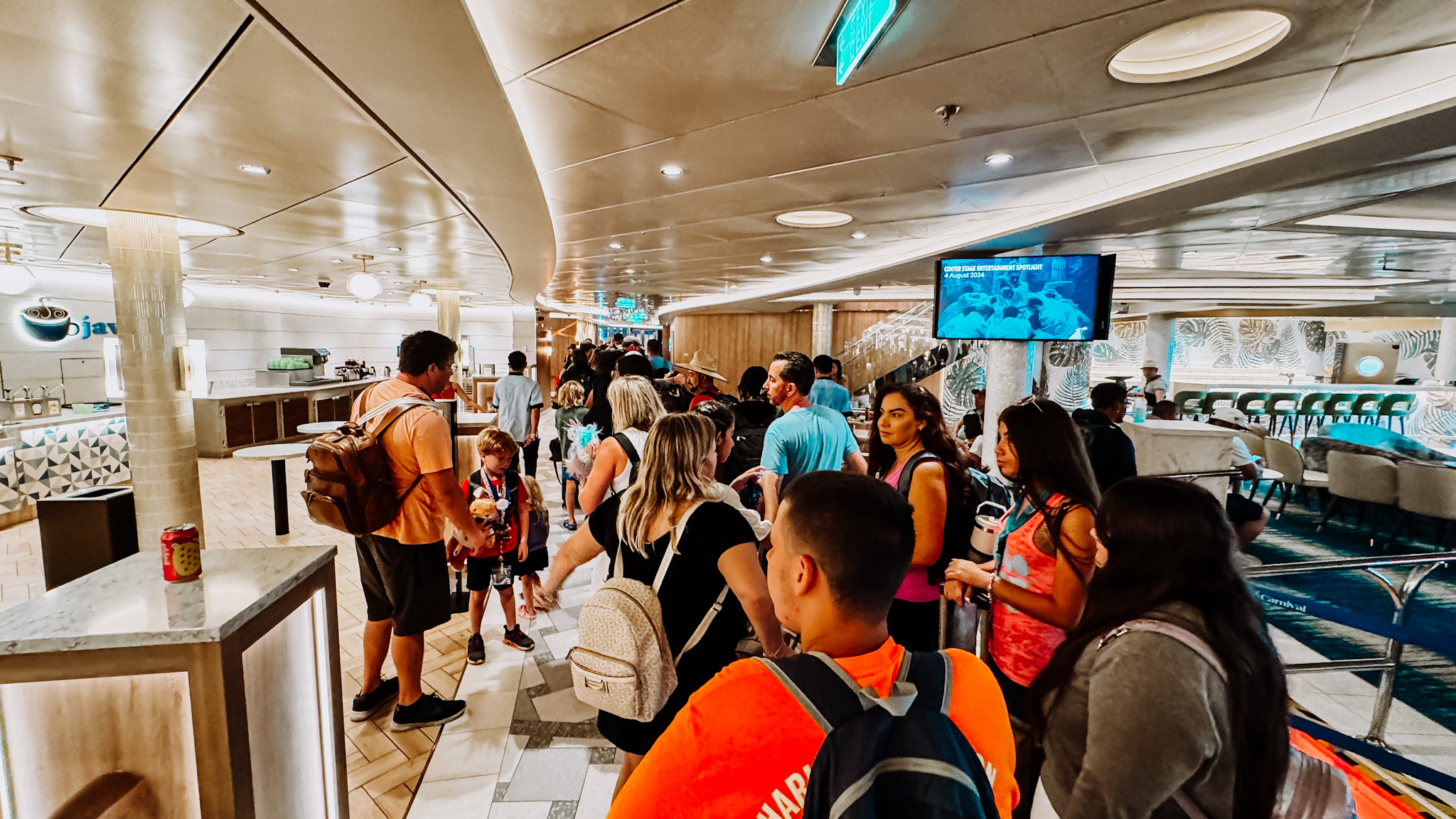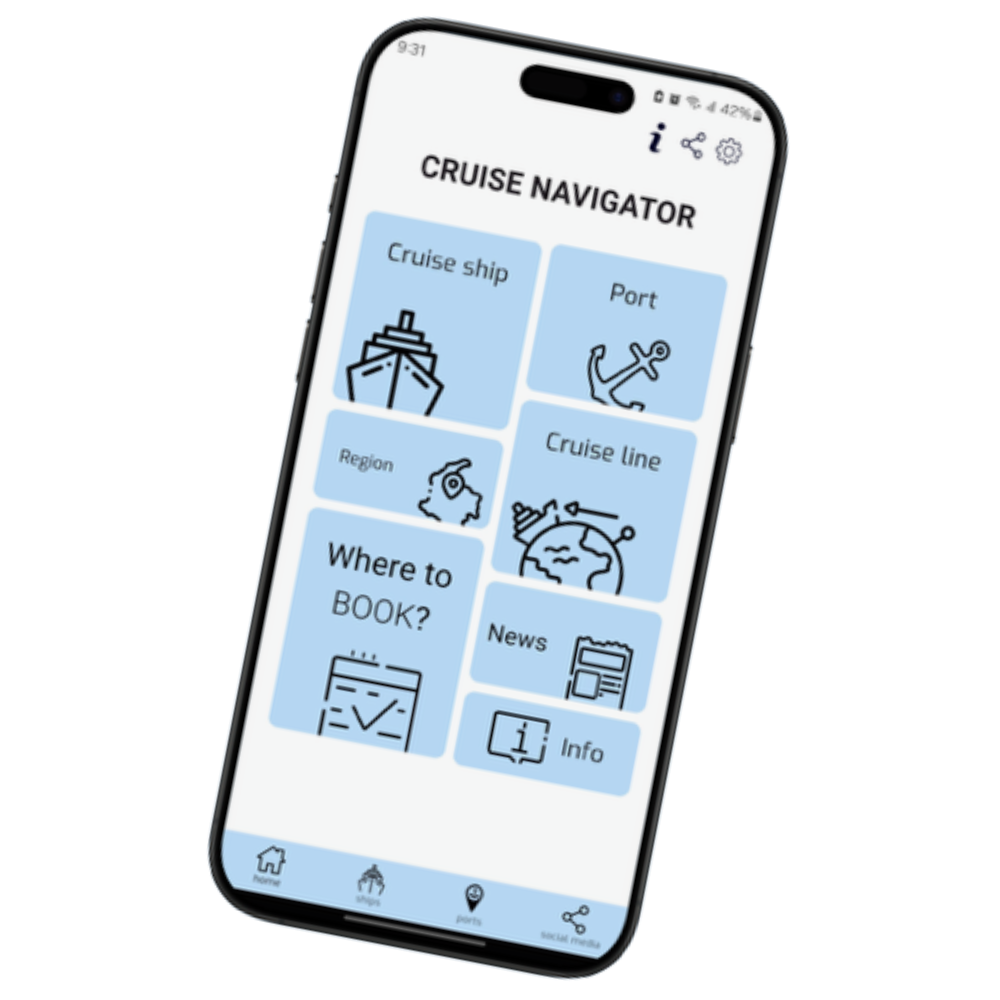On the final evening of your sailing, your cruise line will provide luggage tags to you, or in some cases you must pick them up at a designated location. These only apply, however, if you plan to check your luggage.
Those who check are expected to tag their luggage and place it outside their stateroom door by a designated time, which is usually late in the evening: around midnight-1 am.
What Is Cruise Disembarkation and Why It Matters
Pros of Self-Carry: This gives cruisers the most flexibility, as you aren’t beholden to the cruise line to pick up and deliver your luggage. I generally prefer to self-carry, especially if I have an early return home flight and must get off the ship as soon as possible.
Another benefit is that you don’t have to stress about how to pack your belongings, as they’re all within your possession at all times.
You also don’t have to rush on the night before disembarkation to pack, as you could wait until morning to do it. It’s also more secure, as the luggage isn’t leaving your hands.

Cons of Self-Carry: Self-carry is unfortunately a poor option for those who have physical or mobility issues, as it means having to lug around your bags from your stateroom, down the hall, up or down stairways (elevators are always a mess on disembarkation morning), and down the gangway and through the terminal exit.
Even for cruisers with no impediments, this option still requires quite a bit of “wrangling,” which can prove annoying if you have several pieces of luggage or heavy pieces. If I’m in no rush to disembark, for instance, to catch an earlier flight, I sometimes check my bags just to avoid the hassle of lugging them around.
Self‑Carry vs. Checked Luggage – Pros and Cons
Benefits of Self‑Carry (Express Walk‑Off)
The biggest benefit of checking your bags is the ease and convenience of not having to lug them around with you on the morning of disembarkation.
Many cruisers, time permitting based on their transportation home, opt to enjoy one last breakfast on the ship, either in the buffet or the Main Dining Room (MDR). Having to deal with bulky or heavy luggage can be an annoyance when you’re doing that. Walking off the ship free-handed is a convenience.
Drawbacks of Self‑Carry – When It Isn’t Ideal
Checking your bags means you’re taking a chance that the cruise line may lose or damage your bags, or in rare cases, something might get stolen. You’re also giving up time flexibility, as you must wait for your bags once you’re off the ship and in the terminal waiting area.
In my experience, getting my checked bags has been a quick process- usually with the bags waiting for me when I arrive- but that’s not a guarantee. When you check your bags, you also have the added chore of packing (carefully) the evening before.
In one of my cruise groups, I heard a funny story of a woman who thought she had left out an outfit to wear on disembarkation morning, but accidentally packed all of her clothes and found herself without any clothes beyond the pajamas on her back.
When I opt to check my luggage, I check just my suitcase and keep my backpack with me, and I’m always careful to keep back clothes to wear. You’ll also want to ensure that you keep any and all valuables, especially your passport, in your possession.
Checked Luggage – A Cruise Line Approach

Some cruisers wonder if the cruise line scans or X-rays their bags upon disembarkation. While cruise luggage is scanned upon embarkation, generally this does not happen upon disembarkation.
Before exiting the cruise terminal, guests may be asked by Customs and Border Protection for a brief check of luggage and a verbal declaration of merchandise purchased while on the cruise. Unpackaged foods are generally not allowed to be taken off the ship and may be confiscated.
Convenience vs. Risk – What to Consider
You’ll need your ship card to disembark the ship, and all cruise lines call this something different. For example, Royal Caribbean calls it a “SeaPass” card, and Carnival calls its a “Sail & Sign” card.
Other cruise lines, like Virgin Voyages, don’t use a physical card at all but rather a bracelet with a digital fob. Princess uses a medallion.
As this is the way the cruise line can track cruisers and verify that all have left the ship, you will not be permitted to disembark without it. So if you’ve lost your ship card, you’ll need to go to guest services to get a replacement. At the exit point of the ship, this card is generally all you need.

Once down the gangway and into the cruise terminal, cruisers will often be separated into two separate lines: ones for those cruising with an ID and birth certificate (on closed-loop itineraries) and another one for cruisers with a passport.
If sailing with a passport, facial recognition now makes the process very easy, and you will likely not even need to show your physical passport to exit. After you’ve cleared Customs, you will exit the terminal, where you may be greeted with a bit of chaos as embarking cruisers come in as you and your fellow disembarking shipmates are leaving.
How Long Does it Take to Disembark a Cruise Ship?
FYI – “debark” and “disembark” mean the same thing and are both acceptable and synonymous terms, and many cruisers are curious about how long it takes to disembark from a cruise ship. The answer is — it depends. In my experience, it has varied widely.
I disembarked once in less than 20 minutes, basically walking off the ship with nearly no line and breezing through customs once in the terminal, thanks to facial recognition. On other sailings, though, it’s taken upwards of an hour due to bottlenecks in the debarkation process.

Carnival recently rolled out its “digital debarkation” process, where cruisers use their Hub app to select their disembarkation time slot and preferences, and updates like these have continued to make the process even more smooth and efficient for many of the cruise lines.
How Early Can I Get Off a Cruise Ship?
If you’re hurrying to disembark to catch an early flight back home or for any other reason, you can often purchase the cruise line’s priority access. For example, Carnival’s Faster to the Fun option benefits you from being in one of the first groups off the ship.
You can also enjoy these perks without cost if you have top-tier loyalty status. Self-carrying your bags is generally the fastest path to exiting a ship quickly.
While it’s advisable not to book a flight back home from the port city too early (flights departing after Noon are best practice), it is possible to catch an earlier flight.
You’ll need to account for the transport time from the cruise terminal to the airport, as in some cases, like with Port Canaveral or Galveston, it can be upwards of an hour, depending on traffic. But self-carrying your bags off and selecting the earliest possible disembarkation time will increase your chances of making an earlier flight home.
Getting Arrested at Disembarkation
Unfortunately, some cruisers face the sadness of ending their cruise vacation with another form of misery — an arrest. Many cruisers don’t realize that cruise lines run passenger manifests by US Customs and Border Protection.
Those with outstanding warrants may be pulled aside from security as they go to disembark the ship and are escorted to awaiting local authorities where they are arrested. So if you have a warrant for your arrest, do not take a cruise.
What's the Best Way to Get Luggage Off a Cruise Ship?












